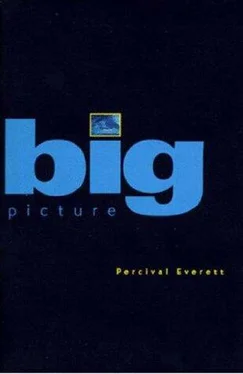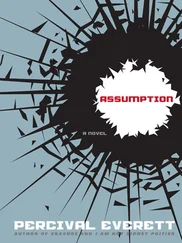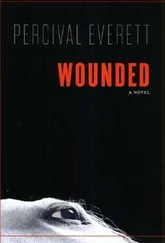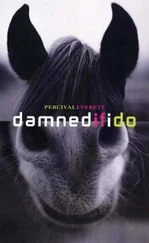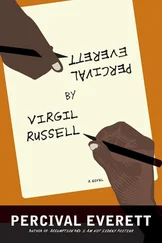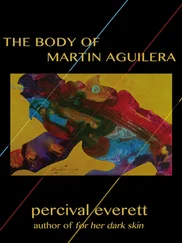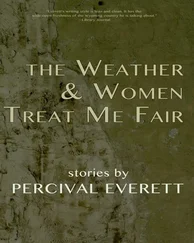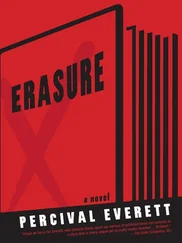“Takes all kinds.”
At home, Hiram found Carolyn already in bed and sound asleep. He didn’t pause for the cup of tea he wanted, just undressed and slid into bed next to her. He felt the cool sheets against his back and stared up at the ceiling. The vapor lamp over the door of the barn always threw just a little light through the window. He listened to his wife’s breathing and closed his eyes. The world was thirty inches high and full of scents, the pads of his paws struck the ground fully, completely, feeling it thoroughly, absolutely, pushing it away beneath his body with each stride and he was floating, the muscles of his haunches and shoulders replete with eager power, power resting, power tightly wound, his nerves on fire, his eyes pressed to the edge of capacity and all of it, all of it set to the quiet his presence created in the woods, the quiet and his subdued, continuous, vibrating breathing. He understood that he was in danger, that he fell centered in the crosshairs of someone’s sad and human weapon, but he could not pause to be apprehensive, could not pause to locate the enemy, but instead walked through the woods that were his, the quiet of his making, looking for life where life always was, walking on the floor that had always been his, waiting for the report to split the air. Now he was Hiram Finch and he was standing in Marjorie Stoval’s kitchen, at least he believed it was Marjorie Stoval’s kitchen, it being oddly made of wood with the bark still on it, and Marjorie was standing in front of him, her blouse open and her breasts exposed and he was attending to her nipples, large nipples, the kind he had never found appealing, but here they were and he wondered why he was in her kitchen and she was pushing her finger toward him, toward his chest that he realized was uncovered, to his sternum. Her finger landed lightly and he could feel his heart rattling in its cave, vibrating and filling his torso with that low, continuous purring and her finger dragged its nail down along the line that separated his left from his right.… Hiram awoke with a start and saw the light from the vapor lamp still on the ceiling and heard his wife breathing beside him. He pushed the top sheet off his body and tried to let the air through the window cool him. He was afraid and lonely and hungry, terribly hungry. He rolled onto his side and faced his wife’s back. He put his hand on her hair.
Michael Lawson didn’t believe his wife when she told him that she was tiring of his periodic depressions, nagging headaches really, bouts that would often last for a couple of weeks. The headaches manifested themselves in overly quiet behavior and some grumpiness, but mostly in minor absent-mindedness and seeming apathy. He didn’t believe Gail when she said that she didn’t like the way he talked to her when he was “lost in his own little world,” nor when she informed him that she was falling out of love with him, although he had actually noted the germinating distance in spite of his ostensible lethargy and inattention. He didn’t believe any of it when the message was conveyed by a “concerned” third party, his wife’s friend Maggie, who had never seemed to like Michael anyway. Maggie made a special trip over for a chat, knowing that Gail was not there, and in fact admitted early on in the chat that Gail was waiting at her house. It didn’t appear to bother Michael that Gail had a new close friend named Bob who was “fun” and “bright” and single, although the friendship hadn’t, contrary to Maggie’s accusation, gone without regard. He was some kind of skin doctor who lived way out with other skin doctors in a cul-de-sac in the foothills north and west of Denver. But when Michael came into the house from his studio, which was just seventy yards away, and found that all of the spots where the furniture had been were now merely spots, he could only do what the note on the bare wood of the kitchen floor said—“Believe it.”
Michael didn’t go to the foothills to talk to Gail, or to finally get a good look at Bob the skin doctor and his house with the bathroom the size of a barn. She left in the middle of one of his depressions and he somehow wanted her to be okay, at least he talked himself into believing that was what he wanted. He folded the note neatly and placed it on the counter. He thought perhaps he had never really loved Gail, and was saddened by the knowledge that she had loved him, had wasted her time loving him. Michael walked back out to his studio and collected his paintings, twenty-seven large canvases. He heaped them in a pile in the yard, doused them with gasoline from a can he kept for the mower, and tossed on a strike-anywhere kitchen match that he held until he burned his fingers. It was a big fire that caused a neighbor to call the fire department, who put it out quickly with fat hoses stretched across the yard, red lights twisting in the predawn sky, while the marshall wrote out a citation for Michael. When the fire fighters roared away, he packed all the clothes he could into the two suitcases that his wife had left behind, got into his pickup truck, looked into his mirror, and saw that a smattering of neighbors were still rooted, loitering and gawking and whispering. He then drove away, stopping at an automatic teller before heading north toward Wyoming.
For years, doctor after doctor had said, “We have to do something about your headaches,” and let that pass as treatment. Finally, failed drug after failed drug, and one neurologist’s insipid question, “Are you sure they’re headaches?” led Michael to give up and admit that the pain was a part of his life. Evidently the headaches were not going to kill him, a lamentable thought, so he decided to get to know them, to feel them, to accept them, to, in what he thought was the Zen way, become one with them. He didn’t mention them, just endured them. He didn’t miss them when they left, and was not surprised when they returned: different headaches with disparate associative symptoms, which located themselves in various parts of his head, where they moved, pulsed, or sat immobile for hours behind an eye or ear like cheetah watching gazelle.
Michael drove north on Interstate 25, then west toward Fort Collins. Clouds were already collecting over the front range, just a few then, but soon there would be many, and he was glad to be out of Denver where the weather was always sudden and extreme: hail and tornadoes or clear, blizzards followed by sunny days of sixty degrees with gentle breezes from the south. He made his way through Fort Collins and stopped for breakfast at a diner on US 287 that sported stuffed animals everywhere he looked: heads of deer, elk, and moose were hung over the tables of booths, and bobcats, coyotes, and badgers marched along a mantle that separated the dining area from a little store with cold drinks, doughnuts, and sundries. The headache he nursed was a sharp, needling pain behind his left eye that spread toward the back of his head like smoke, becoming duller, but fingering out with a scratching at the base of his brain. He cataloged it as he fell into a booth beneath the head of a wild boar with a conspicuously missing left eye. The brass plate under the trophy read, “Javelina, Dicotyles tajacu , taken July 1967, Red River, NM by C.C. Wilcox.”
The waitress, a plump woman, looking to be near thirty, was wearing off-white nurse’s shoes and a too-short navy skirt and holding a pot of coffee. She said, “You can sit somewhere else, if you want.”
Michael looked at her.
“If the Dicotyles tajacu bugs you,” she said. “You can move to another booth. The Odocoileus hemionus is available. So is the Antilocapra americana. ”
Michael looked at the other dead animals over the empty booths. “I’m okay here,” he said, turning his cup mouth up for the coffee.
Читать дальше
